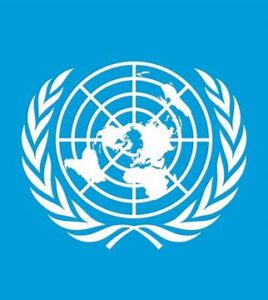UN Sustainability Goals
The United Nations has long looked to help other states build on their sustainability, both within and with other states. They created a list of 17 different sustainable development goals for each individual state to work on so that together they can work towards a better collective global world with consistent trade, good living conditions and a sustainable economy where all states are satisfied. Unfortunately, there are a multitude of reasons that this goal is seemingly unachievable for many nations and they will have to take big strides to be able to achieve sustainability.

While there are 17 goals for these states to achieve, it would be impossible for each state to accomplish them all at one time. The proposed solution of this is for each state to focus on their biggest issues currently. These can be a corrupt government, international war, deforestation, unsafe living conditions, terrible economies, inequality, justice for marginalized groups and many more.
SDG Goals
States such as Iran have struggled with inclusivity within their country for decades now because of their culture. Typically, women are not supposed to work and are seen as individuals who can only do certain jobs. They are even prohibited to take on certain jobs such as farming, fishing and construction as they are believed to not be able to perform. Women only make up 15% of the workforce within Iran and make far less money at every single job position within Iran. there is a clear cultural bias against women in the workforce and it has resulted in gender inequality and an economy performing at basically half capacity. The inclusion of women in the workforce would be a massive step towards improving sustainability within the state of Iran. Someone must hold Iran accountable for their inequality within their state or they will not be able to help other nations work towards peace.
Iran Has committed to Sustainable development goal 16, which primarily states they will promote peaceful and inclusive societies, justice for all groups of people and working towards sustainable development. They have worked with the United Nations and World Bank to work towards peace and sustainability. They have also made strides by increasing education and healthcare, minority rights, disability rights and women’s rights. While changes are being made, there is still a very long way to go for Iran. Similarly, Egypt has faced similar challenges with sustainable development goal 16. They have faced accusations and issues with corruption, human right’s and security and stability.

Egypt has faced many geopolitical issues in the past and currently. The states surrounding their borders are Libya, Sudan and Israel, all countries who have faced political challenges, armed conflicts and border disputes. The area itself is prone to conflicts and instability such as the conflict between Israel and Palestine recently. Egypt has been forced to try and mediate the conflicts as it borders the Gaza Strip where Palestinian forces are primarily located. They have had to advance the peace process between the two and ensure safety and stability for their state.

Unfortunately, the conflict is at an all time high as of recent and Egypt has been dragged into conflict. The issue then arises that Palestinians fleeing to Egypt for protection with Israel following with violence. Egypt must decide whether they can first protect their state from Israel before they make any rash decisions in protecting Palestinians. Without sustainability and peace within their own state, Egypt will never be able to branch out and help states and groups of people affected by the conflict who just want peace.
Leave a Reply